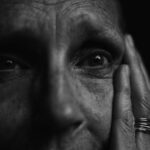The Impact of Social Isolation on Grief
Grief is a profoundly personal and isolating experience, affecting each individual in unique and complex ways. While some bereaved people may be fortunate enough to have a support system of loved ones, friends, colleagues, and community members, others may find themselves withdrawing from these very relationships.
They can become stuck in a prolonged state of intense mourning, lingering beyond the point where healing might otherwise begin. This article explores the devastating effects of isolation on individuals coping with loss and provides guidance on how to reconnect and heal.
Adverse Health Outcomes
Social isolation can have far reaching and devastating health consequences including depression, poor sleep quality, impaired executive function, accelerated cognitive decline, poor cardiovascular function and impaired immunity at every stage of life.
Addictions
Lacking encouragement from family or friends, those who are lonely may slide into unhealthy habits.
They may self-medicate or engage in addictive behaviors as a way to temporarily escape their emotional distress.
Loneliness
When people who are bereaved are disconnected from others, they may experience intense emotional pain, disconnection, and a sense of abandonment, which can exacerbate their feelings of loneliness. More so, chronic loneliness has been linked to depression, dementia, cardiovascular disease, and even early death.
Prolonged or Chronic Grief
When individuals experience intense emotional pain and lack a supportive network, they may struggle to process their emotions and move forward. This contributes to the development of prolonged or chronic grief, also known as complicated grief.
Signs of chronic grief include: excessively staying away from people, places, or activities reminding of the deceased and loss of interest in work, social events, caretaking, or recreational activities to a maladaptive degree.
Overcoming Social Isolation
Check in on them
Check in regularly on the bereaved person you know who is grieving, get a sense of their mood and assess their mental health. If necessary, encourage the griever to reach out to a grief counselor for some support and for some normalization of the grief process. Professionals should listen to the bereaved about their experiences and meet them where they are in their grief and loneliness.
Engage Them
Engaging bereaved persons in community and social groups can lead to positive mental health effects and reduce feelings of loneliness.









